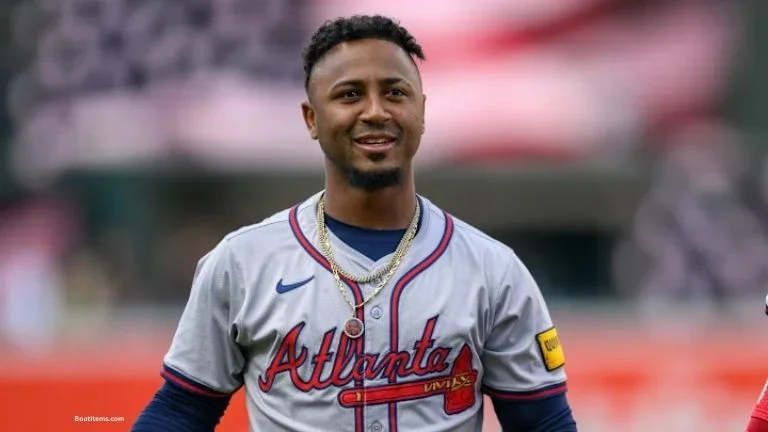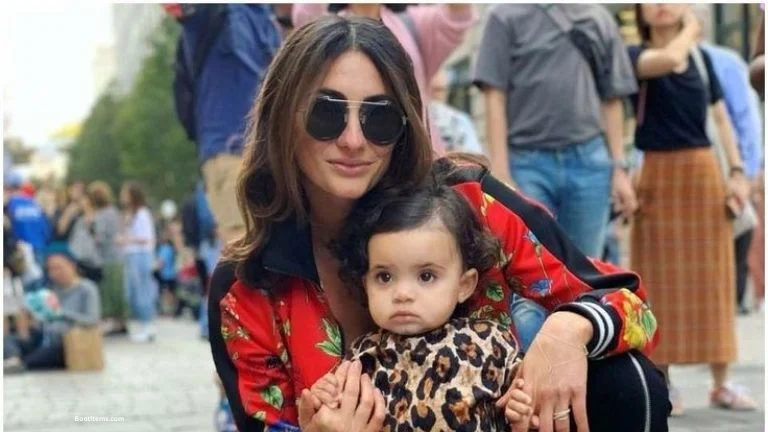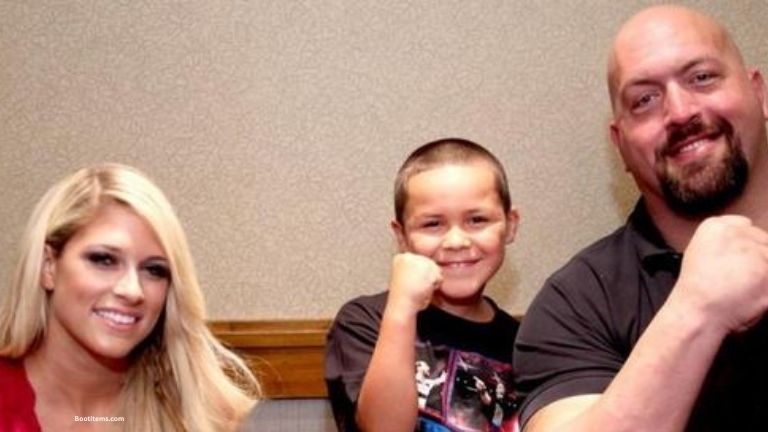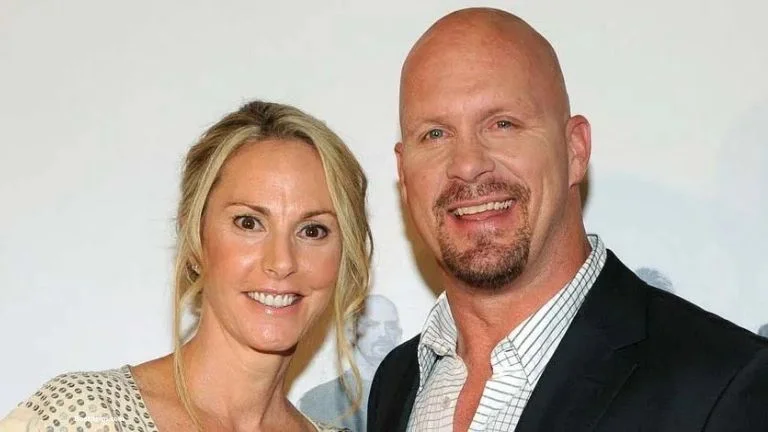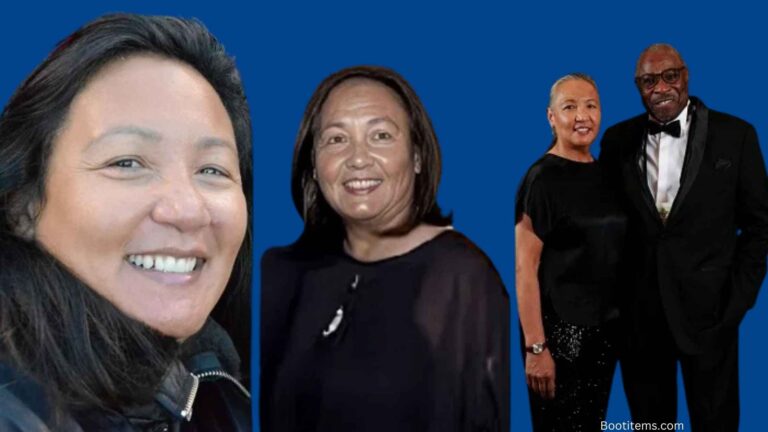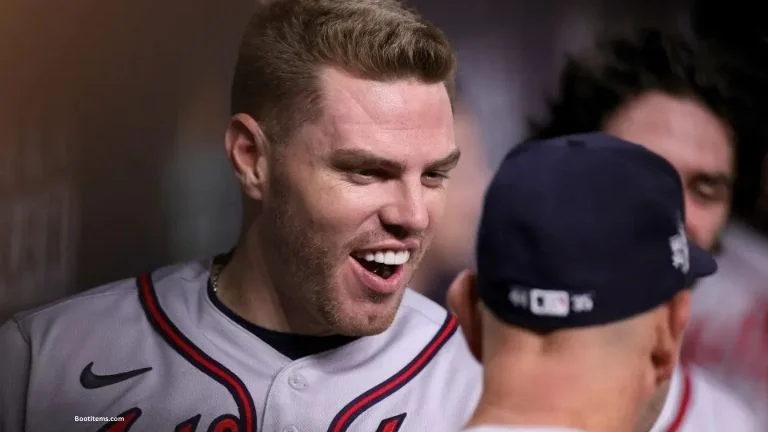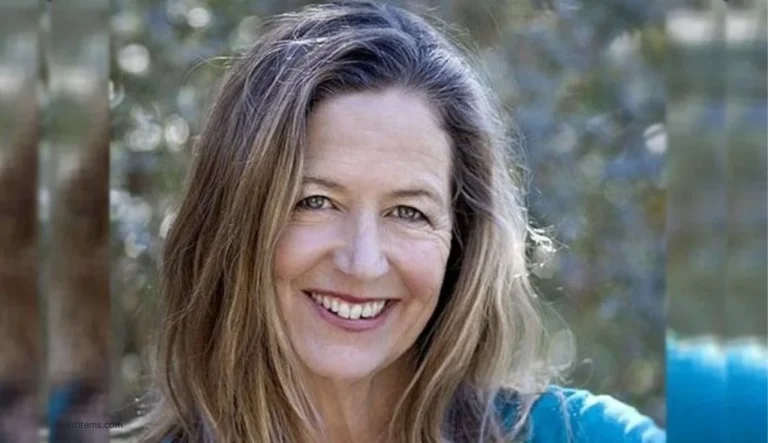Ozzie Albies Contract: Complete Salary Breakdown
Ozzie Albies signed a seven-year, $35 million contract with the Atlanta Braves in 2019, including two club options for 2026 and 2027 that could bring the total to $45 million over nine years.
The Ozzie Albies Contract Breakdown
When the Atlanta Braves announced Ozzie Albies’ contract extension on April 11, 2019, it immediately became one of the most team-friendly deals in Major League Baseball. The second baseman, who was just 22 years old at the time, agreed to a seven-year, $35 million extension that included two club options for the 2026 and 2027 seasons. If both options are exercised, the contract would be worth a total of $45 million over nine years.
Year-by-Year Salary Breakdown
The contract’s structure shows a gradual increase in salary over the years:
- 2019: $1,000,000
- 2020: $370,370
- 2021: $3,000,000
- 2022: $5,000,000
- 2023: $7,000,000
- 2024: $7,000,000
- 2025: $7,000,000
- 2026: $7,000,000 (club option with $4,000,000 buyout)
- 2027: $7,000,000 (club option)
As of 2025, Albies is earning his peak salary of $7 million, which remains constant through the potential option years. The average annual value of the contract is $5 million, significantly below market value for a player of his caliber.
Contract Terms and Guarantees
The Braves guaranteed the full $35 million of Albies’ seven-year contract. The club options for 2026 and 2027 are both valued at $7 million each, with the first option including a $4 million buyout. This means that even if the Braves decide not to keep Albies for the 2026 season, they would still owe him $4 million.
If both options are exercised, Albies will remain with the Braves through his age-30 season, becoming an unrestricted free agent in 2028. The contract effectively bought out four potential free-agent years, as Albies would have been under team control through 2023 without the extension.
The Context of Albies’ Contract Decision
To understand why Albies agreed to what many analysts consider an extremely team-friendly deal, we need to examine the context and his personal motivations.
Financial Security vs. Maximum Value
When Albies signed his extension in 2019, he was coming off his first full MLB season where he earned his first All-Star selection. While he had shown tremendous promise, he was still early in his career with limited financial security.
“I don’t look at it just from money because I’m not playing for money,” Albies stated after signing the deal. “I’m playing for my career. I took it because I want my family to be safe.”
This sentiment reveals Albies’ primary motivation: providing immediate financial security for his family in Curacao. The guaranteed $35 million represented life-changing money for the young player, even if it potentially left hundreds of millions on the table compared to what he might have earned through the arbitration process and eventual free agency.
Injury Concerns and Risk Aversion
Another factor in Albies’ decision was his experience with injuries. In 2016, he suffered a fractured elbow while simply swinging a bat during the Southern League playoffs. This injury likely influenced his approach to contract negotiations, making the guaranteed money more appealing than the uncertainty of year-to-year contracts.
“When you sign a guaranteed deal, if you’re young enough, you get a second deal on the back end if you play to your capabilities and perform well,” Braves general manager Alex Anthopoulos explained. “You just don’t know what’s going to happen. But we’re hoping for great health and great performance. And we’re hoping there is a second great deal behind this one.”
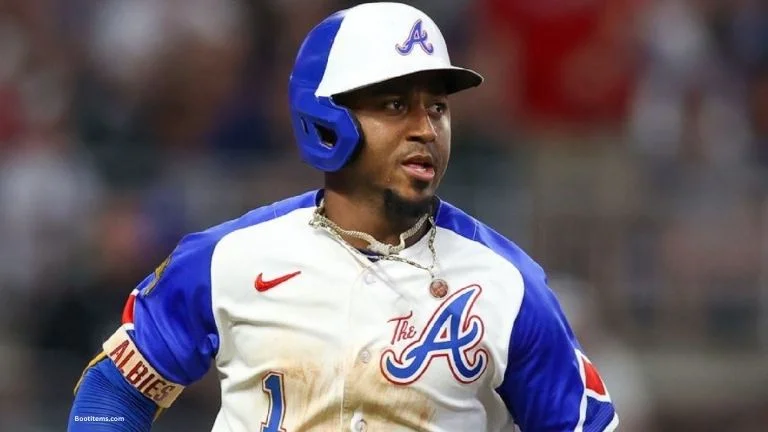
Comparison to Other MLB Contracts
To fully appreciate the nature of Albies’ contract, it’s helpful to compare it to other similar deals around the league.
The Ronald Acuña Jr. Parallel
Just one week before Albies signed his extension, his teammate and close friend Ronald Acuña Jr. agreed to an eight-year, $100 million contract with the Braves. Acuña’s deal, which holds a maximum value of $124 million over ten seasons if two club options are exercised, was also widely viewed as team-friendly.
However, the stark difference in guaranteed money ($100 million for Acuña vs. $35 million for Albies) raised eyebrows across the baseball world, especially considering both players had shown similar promise. While Acuña will begin earning $17 million annually when he’s 26 years old in 2023, Albies will never earn more than $7 million in any season under his current contract.
Comparable Player Extensions
When compared to other players who signed extensions after accruing between one and two years of service time, Albies’ deal stands out as particularly team-friendly. Players like Christian Yelich and Andrelton Simmons, who had similar performance levels to Albies at the time of their extensions, received guarantees of over $50 million each—approximately 50% higher than what Albies received.
This disparity led many baseball analysts to criticize the deal as the Braves taking advantage of a young player. FanGraphs published an article titled “Here’s Why the Ozzie Albies Deal Was Terrible,” highlighting how the contract didn’t make sense when compared to similar players.
Albies’ Performance Under the Contract
Now that we’re several years into the contract, we can evaluate how Albies has performed relative to his compensation.
Career Achievements and Statistics
Since signing the extension, Albies has continued to develop as one of the premier second basemen in MLB. As of 2025, his achievements include:
- Three MLB All-Star game appearances
- Two NL Silver Slugger Awards
- A World Series championship with the Braves in 2021
- The MLBPAA Braves Heart and Hustle Award in 2021
These accomplishments demonstrate that Albies has lived up to and perhaps exceeded the expectations the Braves had when they offered him the extension. His consistent performance has made the contract even more valuable for the team.
Injury Concerns
Despite his success, injuries have been a factor in Albies’ career. Since 2021, he has missed approximately 181 games—almost a full season and a half of baseball. These absences raise questions about his durability as he moves into his late 20s and early 30s.
The injury history might retrospectively justify Albies’ decision to secure guaranteed money early in his career, even if the total amount was below market value.
Offensive and Defensive Performance
Albies’ offensive production has shown some inconsistency over the years. Two of his last four seasons have been below league average in terms of wRC+ (Weighted Runs Created Plus), including a 6% dip in 2022 and a 5% drop in 2024.
His performance against right-handed pitching has been a particular concern. Over eight years, he’s only posted a wRC+ above league average against righties in three of those seasons, with a career on-base percentage against them of just .309.
Defensively, there’s been some decline in recent years. From 2017-2022, he was in the top 20% of MLB players in Outs Above Average in four seasons. However, since 2023, he’s fallen off sharply, ranking in the bottom 2% and bottom 34% in back-to-back years.
The Future of Albies’ Contract
As we look ahead to the remaining years of Albies’ contract, several questions emerge about his future with the Braves.
The Club Options Decision
Given the extremely team-friendly nature of Albies’ contract, it’s virtually certain that the Braves will exercise both club options for 2026 and 2027. Even with the $4 million buyout for the 2026 option, the $7 million salary represents exceptional value for a player of Albies’ caliber, even accounting for some performance decline or injury concerns.
Potential for a New Extension
As Albies approaches the end of his current contract, there’s increasing discussion about whether the Braves should offer him another extension. A recent article from February 2025 suggested that “a deal in the range of five years and $75 million could work for both sides.”
Such an extension would significantly increase Albies’ average annual value to $15 million, which is closer to his market value while still providing good value for the team. It would also ensure he stays in Atlanta beyond 2027, potentially allowing him to spend his entire career with the Braves.
The Team’s Perspective
The Braves have been proactive in securing their core players with long-term contracts. Beyond Albies and Acuña, they’ve locked up players like Matt Olson, Austin Riley, Spencer Strider, and Michael Harris through at least the 2026 season. This young and talented group has become the envy of many teams around baseball.
From the team’s perspective, extending Albies would maintain continuity in their infield and preserve a fan favorite. However, they must weigh this against his injury history and some signs of performance decline.
The Player’s Perspective
For Albies, a new extension would represent an opportunity to finally receive compensation closer to his true market value. While his current contract achieved his goal of providing financial security for his family, a new deal could potentially double his annual salary.
At 28 years old in 2025, Albies is still young enough to secure another significant contract before his skills begin to decline substantially. If he waits until free agency in 2028, he would be 31—an age when many players start to see their market value decrease.
Bess Katramados: Big Show Wife
The Impact of Albies’ Contract on MLB
Albies’ contract has had ripple effects beyond his personal finances and the Braves’ payroll.
Setting Precedents for Young Players
The extreme team-friendly nature of Albies’ deal has been cited as a cautionary tale for young players considering early extensions. Agents and the MLB Players Association have pointed to this contract as an example of why players should be careful about leaving too much money on the table early in their careers.
In the years since Albies signed his deal, we’ve seen young stars like Fernando Tatis Jr. ($340 million), Wander Franco ($182 million), and Julio Rodríguez ($210 million) sign much larger extensions early in their careers, perhaps partly in response to the criticism of Albies’ contract.
Team Building Strategy
The Braves’ success in signing multiple core players to team-friendly deals has influenced how other organizations approach contract extensions. Teams like the Tampa Bay Rays and Cleveland Guardians have similarly focused on locking up young talent early, though typically with more player-friendly terms than Albies received.
This strategy has allowed the Braves to maintain a competitive team while keeping their payroll relatively manageable, demonstrating an effective model for sustainable success in a sport without a salary cap.
Frequently Asked Questions About Ozzie Albies’ Contract
How much is Ozzie Albies making in 2025?
In 2025, Ozzie Albies is earning a base salary of $7,000,000, which is also his total salary for the year. This represents the peak annual salary in his seven-year, $35 million contract extension signed in 2019.
When does Ozzie Albies become a free agent?
If the Atlanta Braves exercise both club options in his contract, Ozzie Albies will become an unrestricted free agent in 2028. Without the options, he would become a free agent after the 2025 season.
How does Albies’ contract compare to other second basemen?
Albies’ contract is significantly below market value compared to other top second basemen in MLB. Players like Marcus Semien ($175 million/7 years), Jose Altuve ($151 million/5 years), and Ketel Marte ($76 million/5 years) all earn substantially more on an annual basis.
Why did Albies sign such a team-friendly deal?
Albies has stated that his primary motivation was financial security for his family in Curacao. Having experienced a significant injury early in his career (fractured elbow in 2016), he prioritized guaranteed money over maximizing his potential earnings through arbitration and free agency.
Could the Braves trade Albies before his contract expires?
While possible, a trade seems unlikely given the exceptional value of Albies’ contract. The combination of his performance level and low salary makes him extremely valuable to the Braves. Additionally, his close friendship with Ronald Acuña Jr. and popularity with fans makes him an integral part of the team’s identity.

Samantha Yates is a creative writer and journalist with expertise in content creation and editing. She holds an MA in Creative Writing and brings professional experience from Lionbridge, where she developed engaging content for leading technology companies

